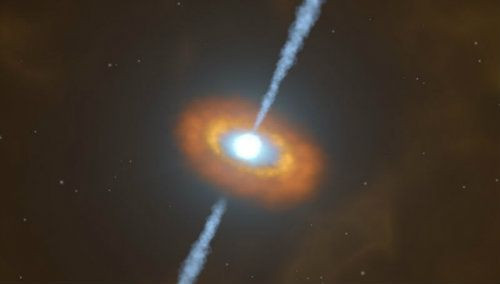New Study Sparks Fear Of Milky Way’s Black Hole Swallowing Earth

A recent study about the unusual behavior of the supermassive black hole at the center of the Milky Way Galaxy sparked fears that Earth might get swallowed in the future. This prompted the researchers to release a video clarifying what’s happening with the black hole and if it will really swallow Earth.
In a new study published in The Astrophysical Journal Letters, researchers from the University of California, Los Angeles indicated that on May 13, Milky Way’s supermassive black hole displayed unusual behavior.
According to the researchers, the black hole appeared brighter than ever before.
“On that night, I was just observing the stars around the black hole and there was this really bright source in the middle,” lead researcher Tuan Do told Inverse. “We’ve been looking at this black hole for years now and this was the first time I saw it doing this.”
Through follow-up observations, Do and his team realized that the unusual brightness was caused by the huge amount of cosmic gas and dust falling into the black hole, which produced light radiation. Previous observations revealed that a particular star orbited a little too close to Milky Way’s center, which may have caused an increased volume of gas and dust to fall into the black hole.
Since the black hole consumed larger quantities of gas and dust than usual, many reports indicated that it was “getting hungrier.” These assumptions immediately escalated to the idea that the black hole’s growing appetite could someday reach Earth, eventually swallowing the entire planet.
In response to the inaccurate reports, Do and his colleagues Adhimat Gautam and Kelly Kosmo O’Neill posted a video on YouTube explaining the details of their findings. More importantly, the researchers clarified that Earth is not in danger of getting affected or eaten by the black hole.
“No, [the Earth’s] not going to get swallowed up because it’s very far away from the black hole,” Gautam stated. “So the black hole’s really massive, it weighs as much as four million Suns, but even though it’s so massive, it only affects the closest few light-years to the black hole.”
“We’re 26,000 light-years away from the black hole, and it’s not really going to affect is,” he added.
© Copyright IBTimes 2024. All rights reserved.





















